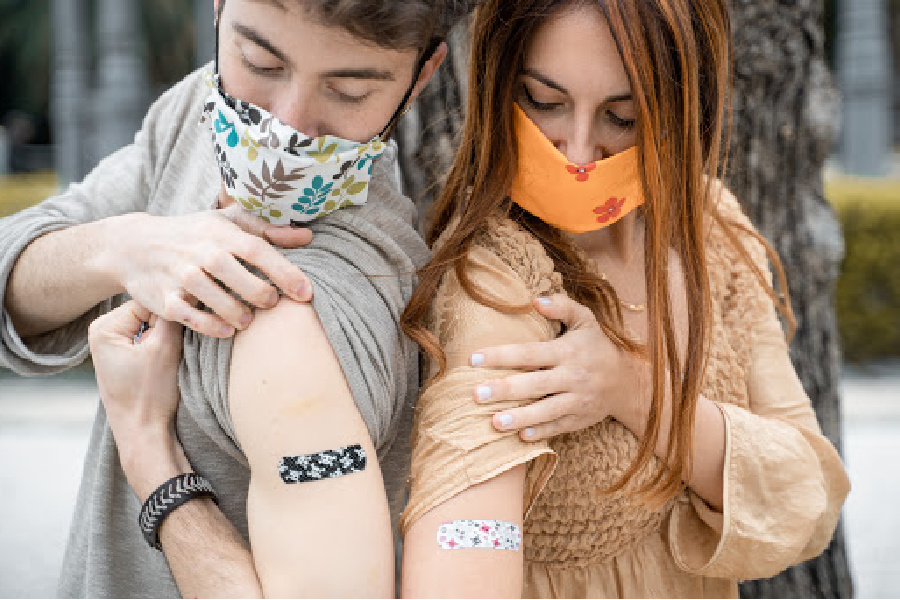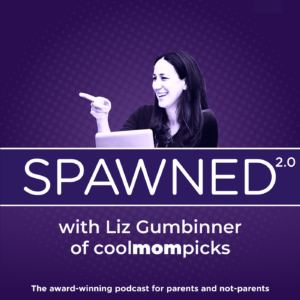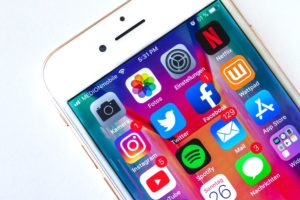I can hardly express the relief and utter joy we’ve felt over the past few weeks, since my teens got their first Pfizer vaccines against Covid-19. The feelings increased substantially since their second shot — knowing they can safely see friends, go to the movies, grab an ice cream inside a cafe (with A/C!), it’s all done wonders for their mental health, their overall outlook on life, and of course, the peace of mind we all have in our family, knowing that they are 100% inoculated against Covid.
I just want every parent to feel this relief. I want every kid to get back to kid life. I want every grandparent to be able to see their grandkids.
And so, if there’s one single things your kid kids should commit to doing once they’ve been vaccinated:
They should talk to their friends about getting vaccinated.
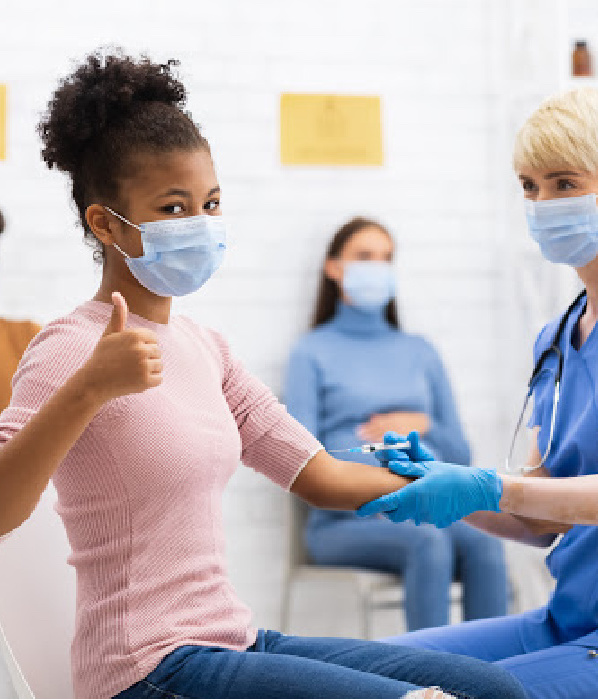
After getting off a press call with CDC Director Dr. Rochelle Walensky and US Surgeon General Dr. Vivek Murthy, I was reminded about the impact of positive peer pressure and how kids can help put it to use here.
This is a case where the influence of friends can be very very good. Because when kids are feeling confident about getting vaccinated about Covid-19, they can then persuade their parents who may be hesitant, less informed, or even misinformed about vaccine safety, efficacy, and overall importance to beating this pandemic for all of us.
(No, you cannot stick keys to your body after any inoculation at all, for heaven’s sake.)
Related: Your questions about vaccine safety + Covid-19 answered: Dr. Perri Klass
Here are the top 4 things your kids can tell their friends 12 and up about getting vaccinated against Covid:
We’ve always talked here about giving our kids agency and good information, and raising them them to solve problems and make good decisions on their own — whether it’s about vaping, drinking and drugs, sex, social media, or their own finances.
Covid is no different in that sense– and certainly more urgent. While we can use monitoring devices or parental controls to try to shield them from dangers on the Internet, what we have when it comes to Covid is…the Pfizer vaccine right now.
As Dr. Walensky explained, when kids talk to their friends, those kids feel more empowered with information to be able to talk to their own parents, and explain their reasoning for wanting to be vaccinated.
Here are a few quick points that our vaccinated kids can tell their friends, who can then feel more confident to pass the info onto their own parents.
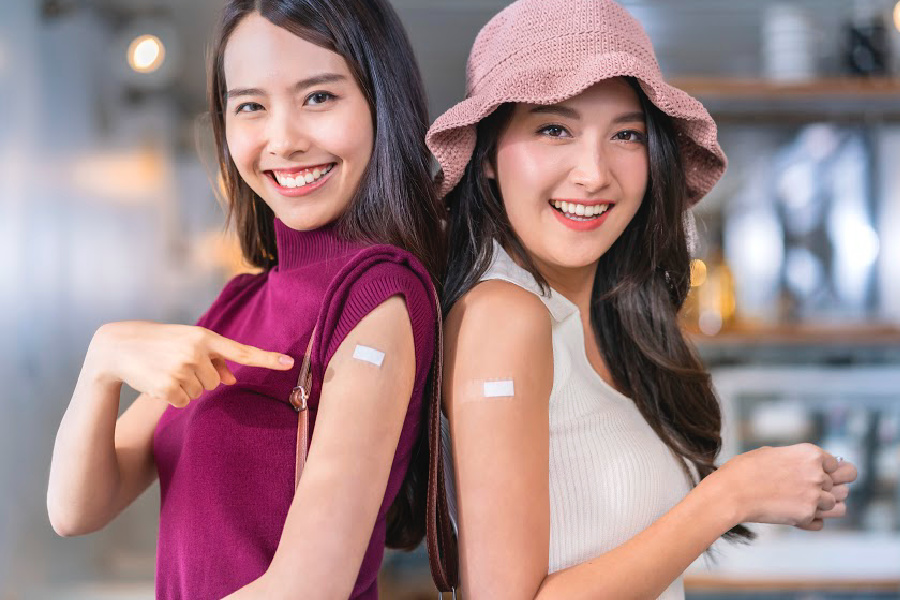
1. The vaccine works.
The Pfizer vaccine (which is currently the only one approved for kids 12+) is extremely effective in preventing Covid. In fact, it is 100% effective. That is a lot of effectiveness!
Most recently, a May 27 New England Journal of Medicine study confirmed this, citing that vaccinated 12-15 year olds exhibited a a greater immune response than ever the 16-25 year old group, and that among kids who had not had any previous SAVS-CoV-2 infection, “he observed vaccine efficacy was 100%.”
2. The vaccine is safe.
My daughter mentioned that a friend’s parent wanted to wait a few more months, to be sure there were no side effects. I understand that feeling as a parent — we want to do everything we can to keep our kids safe. However I trust the science and the data around vaccines, and if this friend wants to convince her parents, here are a few points she can share about vaccine safety:
– She can remind them that first of all, the Pfizer Covid-19 vaccine was not developed a month ago when approvals began; over the course of the past year, it’s been tested on thousands of adolescents 12-15, and proven to be “well tolerated,” which is why it was approved in the first place. Side effects are incredibly minor, and nothing compared with the impact of contracting Covid. (More on that below.)
– It’s also important to remember that the vaccine is not “brand new.” While Covid-19 may be new to us, THE SARS-CoV-2 virus that causes it one of many similar coronaviruses. In fact, it’s a fairly simple virus (compared with say HIV), and therefore the the Covid-19 vaccine was able to build on decades of other vaccines that inoculate safely and effectively against infections from viruses like SARS-CoV and MERS-CoV.
– In more basic terms, we already know that the vaccine is safe. This is not a whole new inoculation that was built from scratch in a day. It was informed by decades of science, research, and data on similar RNA vaccines that fight similar viruses.
– Just a reminder: Doctors are getting the vaccine. Pediatricians are recommending their patients get the vaccine as soon as they qualify. If you have any questions, just ask your own family doctor.
3. The benefits of vaccination greatly outweigh the risks — and there are still a lot of risks Covid-19 presents to kids.
While children are not as susceptible to Covid-19 or to severe illness than the elderly, they are definitely susceptible. Thousands of kids have been hospitalized, kids have experienced ongoing Long Covid symptoms, and some kids who were otherwise healthy, have tragically died.
As Surgeon General Murthy reminded me on our call, “this is not the flu.”
– Be aware that nearly half of kids who have contracted Covid have experienced Long Covid with at least one symptom lasting more than four months. Those symptoms include fatigue, headaches, insomnia, respiratory issues, heart palpitations, nausea and gastrointestinal problems, seizures and hallucinations.
– With the Delta variant spreading (that’s the one in India right now), anyone who is unvaccinated, including children, are even more susceptible to contracting a severe form of Covid-19, and spreading it more quickly to other unvaccinated people. The vaccine remains effective against the variants. (Go, strong adolescent immune systems!)
– In part because we have yet to find a cure for Covid, or even solid treatments against Long Covid, a Covid vaccine is a far, far better option. As with seat belts, bike helmets, and reminding kids to tie their shoes when they walk out the door, Prevention > Cure, right?
4. A Covid-19 vaccine lets kids get back to regular life sooner
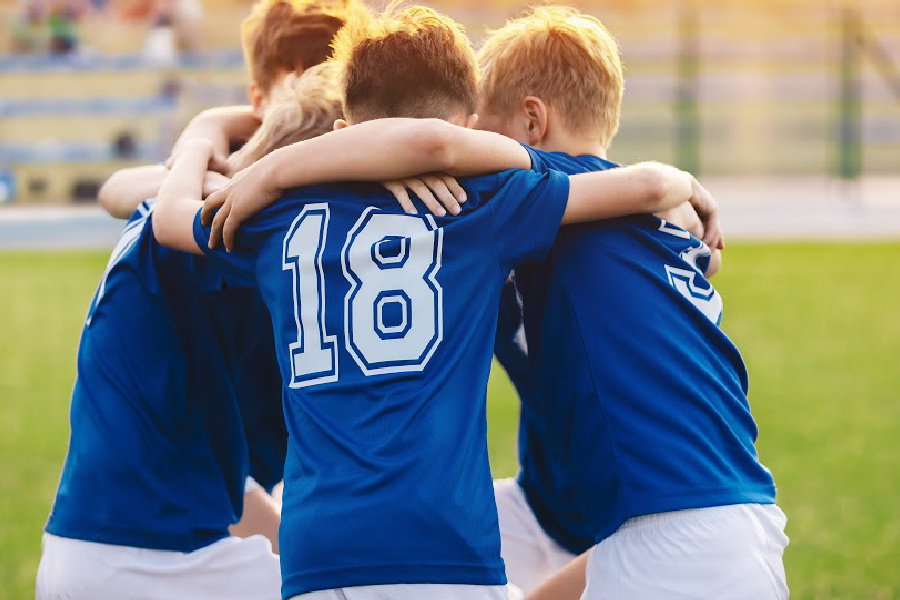
When a vaccinated teen shares their own experiences post-vaxx, and how amazing it’s been to start to feel normal again, that can be the most compelling reason of all; there’s hardly a friend in their circles who can’t relate.
We all know that kids have really suffered through this pandemic. They’ve lost so much, and so have we. And now, we know that there is a mental health crisis among kids that cannot be ignored. Loneliness, isolation, disruption of school routines and activities, loss of family members, and legitimate health fears — all those things have a cumulative impact on adolescents.
But thanks to safe, effective vaccines against Covid-19, we’re about to help kids move past that.
Let’s do this!
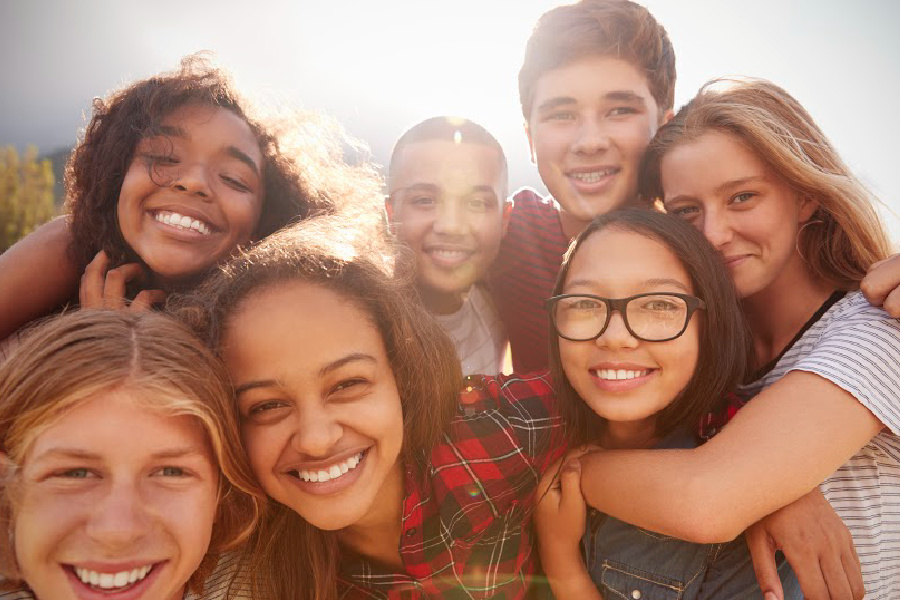
I was emotional hearing Dr. Murtha state plainly that Covid has been a trauma for so many children, and that “it’s important to say that word, because we can’t talk about healing until we can talk about the harm that has been done.”
It’s true.
So let’s get onto the healing. Let’s get back to the in-person birthdays and graduation parties, the proms, the family vacations, the camps, the regular in-person school schedule, the soccer games and ballet recitals, the college visits, the hope for the future — and of course, all those big, wonderful hugs of friends and family. Let’s hit that 70% vaccination number! I’d hope that if we can all agree on anything, it’s that a return to normal can’t happen soon enough.
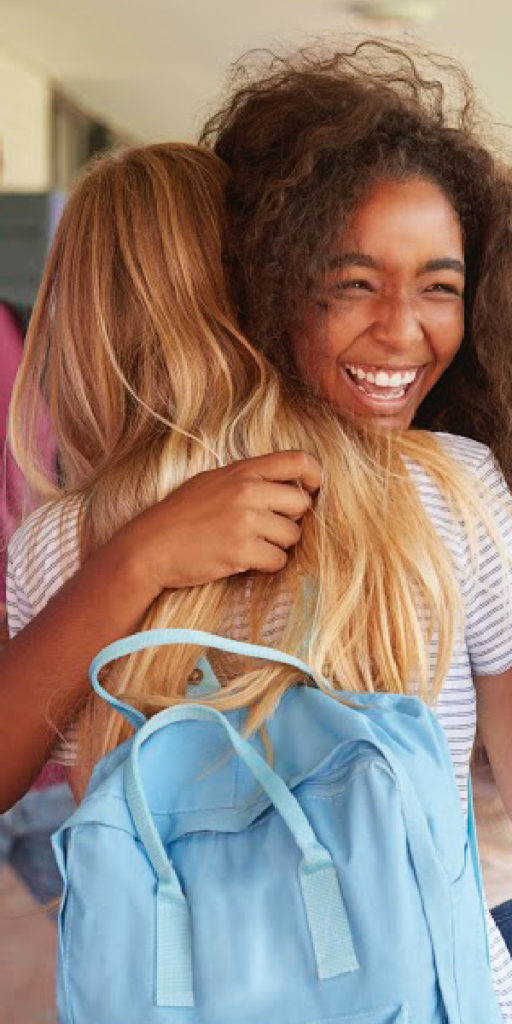
We do this! We do this by getting all our 12+ kids vaccinated. And your own vaccinated kids can help. A lot.
